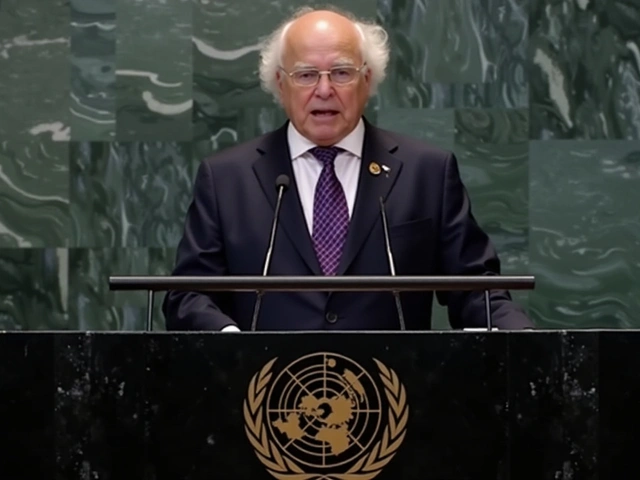- Home
- Miss South Africa Finalist Chidimma Adetshina Withdraws Amidst Intense Xenophobia and Heritage Controversy
Miss South Africa Finalist Chidimma Adetshina Withdraws Amidst Intense Xenophobia and Heritage Controversy

Miss South Africa Finalist's Withdraw Amidst Heritage Controversy and Xenophobia
In an unexpected turn of events, Chidimma Adetshina, a poised and promising 23-year-old law student, withdrew from the 2024 Miss South Africa pageant. Born in Soweto, South Africa, to a Nigerian father and a mother of Mozambican descent, Adetshina's journey in the pageant was met with fervent debate and xenophobic backlash, questioning her legitimacy as a South African.
This unfolding saga began unraveling on social media platforms and stoked heated discussions among politicians. Critics of Adetshina’s participation raised doubts about her South African identity, insisting she was more connected to Nigeria than to South Africa. The story took a more scandalous twist when a preliminary inquiry by the home affairs department suggested that her mother might have engaged in identity theft to secure South African citizenship. Though this inquiry noted that Adetshina could not be held accountable for these actions, which supposedly occurred when she was an infant, the damage had already been done.
Amidst rising tensions and perpetual scrutiny, Adetshina decided to exit the contest, prioritizing her family's safety and well-being over her aspirations. Her withdrawal has spotlighted underlying national issues, compelling South Africans to confront the persistent xenophobia and national identity issues that pervade their society. The severity and intensity of the xenophobic sentiments surrounding Adetshina exemplify the nation's struggle in accepting multicultural identities.
Political Reactions and Public Support
The controversy drew in notable public figures like South Africa's Minister of Art, Sport, and Culture, Gayton McKenzie, who echoed the criticisms. McKenzie openly argued that it would be inappropriate for someone like Adetshina to represent South Africa on an international stage if they identified more with a different nationality. Comments like McKenzie's reflect a broader cultural and political reluctance to embrace a diverse national identity.
However, Adetshina did not stand entirely alone. Figures such as EFF leader Julius Malema rallied in her defense, emphasizing the constitutional principle that citizenship is fundamentally determined by place of birth. Malema, alongside other supporters, argued that Adetshina is undeniably South African by law and citizenship. This faction held the opinion that the xenophobic backlash was entirely unjustified and a disgrace to the welcoming spirit South Africa stands for on paper.
The Role of the Miss South Africa Organization
The Miss South Africa organization itself stood firmly behind Adetshina amidst the uproar. They reiterated that citizenship by itself should be the paramount criterion for contest eligibility, not the ethnic or national origins of one's parents. In their public statements, they highlighted the potential for the pageant to be an inclusive platform that features representatives from all walks of South African life, urging the public to respect the lawful definition of a citizen.
Impact and Broader Discussions on National Identity
What began as a controversy in a beauty pageant has burgeoned into a much larger dialogue on national identity and xenophobia. Adetshina’s ordeal has forced both citizens and policymakers to reconsider the reality and extent of inclusivity within South Africa. Is national identity solely determined by birthright, or does it encompass broader, more complex elements of cultural and personal affiliation? These questions now echo more loudly than ever before.
In multiple communities, debates have driven a re-examination of the values embedded in the South African psyche. The skin-deep nature of acceptance has been laid bare, revealing a troubling reluctance to embrace multicultural identities fully. With every moment, it becomes clearer that South Africa's journey toward unity and acceptance of its diverse populace is far from over.

Chidimma Adetshina's Future and Legacy
For Chidimma Adetshina, the future holds much uncertainty yet potential. While one journey has concluded, the narrative she embodies continues to have a resounding impact. Her withdrawal from Miss South Africa has not only been an act of personal protection but has also become a catalyst for critical social discourse. There is a growing hope that her experience will encourage deeper understanding and more compassionate perspectives on national and cultural identity in the future.
In the end, Adetshina's story is one of resilience, an unwillingness to be defined or constrained by prejudices. Her story reminds South African society that identity is not mere paperwork or parentage but a dynamic amalgamation of lived experiences, aspirations, and legal recognitions. Her withdrawal acts as a poignant call for introspection and change in a society grappling with its true identity.
As the nation continues to reflect on the implications of this controversy, it is evident that fostering a society accepting of all its citizens, regardless of their heritage, remains a critical yet aspirational goal. Whether through marches, social media campaigns, or everyday interactions, South Africans are called upon to resist xenophobia and embrace the rich tapestry of identities that define their country.
Chidimma Adetshina stands as a symbol of this ongoing struggle and, despite the xenophobic backlash she faced, her legacy may very well pave the way for a more inclusive and understanding South Africa. Her participation in this year’s Miss South Africa and subsequent withdrawal have not been in vain but instead highlight the broader societal challenges that South Africans must address head-on.


Write a comment